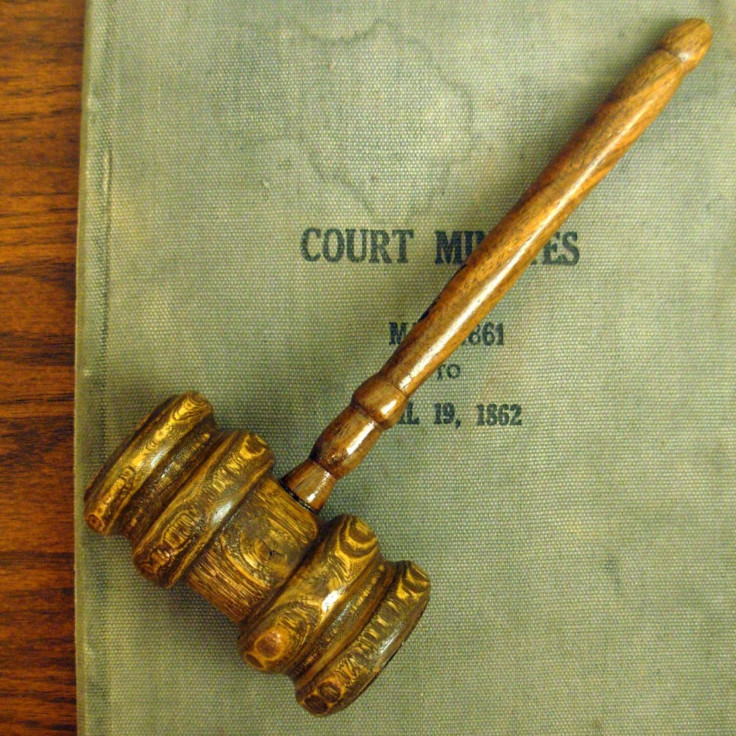An Easier Fix For Medicare
Opinion

The latest Republican pronouncements on saving Medicare, via U.S. Rep. Paul Ryan’s forthcoming budget plan, reminds me of a Roger Rabbit cartoon -- characters careening around, some just missing the vat of acid, others not.
Last year, certain Republicans told us if you were 55 or older, your Medicare benefits would be “safe,” but rumors reported by the Hill revise that age to be at least 56 now. I can smell that vat of acid getting closer. But there’s a much easier way to reduce Medicare costs. Honestly, it won’t hurt a bit.
Way back in 1979, a federal district judge in Florida issued an injunction preventing third parties from looking at Medicare records, citing doctor-patient confidentiality. As noted by iHealthBeat, it stopped President Jimmy Carter’s administration from publishing an annual list of those who received Medicare reimbursements.
That injunction still applies across the country today. Although it technically protects doctors only in Florida, Georgia, Mississippi, and Tennessee, the injunction has been treated as if its effects were nationwide.
Practically, what the injunction did was to create a Medicare oversight net with whale-size holes, simultaneously creating a system where a Medicare patient is viewed as a profit center.
And the impact is huge. The Government Accountability Office recently estimated the Medicare program made $44 billion in wrongful payments in just one year, 2012. Forty-four billion dollars: The annual price tag for that federal judge’s 1979 injunction.
Let’s look at the costly aspects of the injunction.
First, the Medicare system is so huge it’s impossible for the federal government to exercise tight oversight. (The federal government is not a third party under the injunction because it makes the payments.) So a medical professional seeking to expand his or her income rolls the dice and calculates the risk of getting caught, which is typically low.
One way to look at this is to recognize that doctors with Medicare patients must work on volume -- like Wal-Mart -- to realize a decent income. Thus, to make a better income, they crank up the volume.
As the Wall Street Journal found a few years ago, this can result in medical professionals overbilling their time, claiming to see more patients in a day than is humanly possible, ordering unneeded medical equipment, etc.
The Justice Department and the Health and Human Services Department have a combined “strike force” investigative team, and they have uncovered massive amounts of fraud, but that $44 billion in waste that was left on the table is a testament to the limits of federal oversight.
Second, as for Medicare patients being turned into profit centers, I can recall the experience my 86-year-old dad had 10 years ago as he was fighting a losing battle with his cardiovascular problems. I was with him in the emergency room at his local hospital, which served mostly Medicare/Medicaid patients, and saw a parade of his primary-care doctor’s professional chums popping in to have a look at him -- I knew each one would be billing Medicare for their five-minute visits. I also distinctly remember the “wound care” doctor’s visit. She looked at my dad’s badly swollen foot, said his bandage needed changing, and -- poof -- she was gone. Talk to anyone who works in a primarily Medicare/Medicaid hospital, and you’ll hear similar stories.
The Wall Street Journal has been trying in the courts to overturn the injunction, and congressional members have floated many bills to do the same, but to no avail. The American Medical Association is the main defender of the injunction -- its Florida chapter initiated that suit in 1979 -- and continues to do so today. The Wall Street Journal, and others, believe that if third parties were allowed to review Medicare data, investigative journalists could throw more bodies against the fraud problem and help the feds uncover more improper payments.
As for that 1979 injunction:
Has the Supreme Court reviewed this injunction? No.
Have we had a “national conversation” about whether $44 billion is an appropriate price to pay for protecting the doctor-patient relationship under Medicare? No.
Have we had a “national conversation” about whether raising Medicare’s eligibility age is an appropriate price to pay for protecting the doctor-patient relationship under Medicare? No.
And here’s a twist: How about a “national conversation” about whether protecting the doctor-patient relationship in a Medicare reimbursement scenario is worth billions in fraudulent payments when the patient is dead and has no privacy rights? (It’s why the Social Security Administration can publish a dead person’s Social Security Number in its Death Master File.)
Here’s a hint for Sen. Rand Paul, R-Ky., and his Medicare reform plan: As Kentucky lies beyond the technical limits of the injunction, how about inserting a provision in the next HHS appropriations bill, or similar measure, that would allow a pilot project whereby Medicare records involving dead patients from his state could be examined by third parties for investigative purposes only?
This pilot project would only be a small step to solving the Medicare fraud problem, of course, but it would be a huge step back from that political vat of acid.
Joanne Butler is a graduate of the Kennedy School of Government at Harvard University and a former professional Republican staff member at the U.S. House of Representatives Ways and Means Committee.
© Copyright IBTimes 2024. All rights reserved.





















